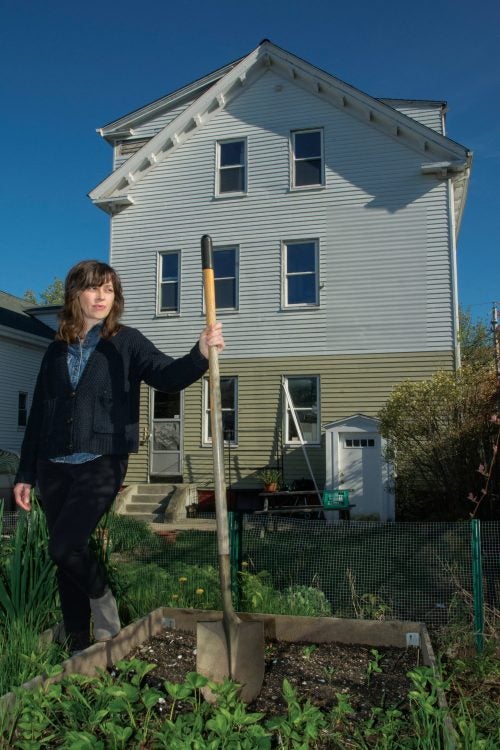In Tenemental: Adventures of a Reluctant Landlady, author Vikki Warner ’98 recounts her purchase of a tenement house in Providence and her dream of establishing an urban utopia—at least within the bounds of her chain-link-fenced yard.

The neighborhood: “My Providence brethren have simply learned to live with the patterns of waste and grift in the city, mostly by devising artful new ways to complain and joke about it in our hardass Yankee way. But we stay here because we really love this place. We even love that it is often openly terrible. New Englanders love punishment.”
Tenants she’s known: “I’ve filled [the house] with an outlandish array of people (80 percent male) and animals (60 percent feline): punk farmers, herbalists, body piercers, musicians who play metal, punk, country-rock, psych, and folk (or some combination thereof), chefs, bike mechanics, angry straight couples, boisterous gay couples, couch-crashers, geeks, losers, insomniacs, hippies, alcoholics, artists, pit bulls, Dachshunds, Chihuahuas, ferrets, and a bona fide cat parade.”
Potential perils of planting a garden: “We joked about dead bodies; secretly I was slightly anxious that we might encounter one. In the heart of a formerly mob-controlled neighborhood, digging down is a dicey prospect.”
The myth of the nasty landlady: “The women I know who rent apartments to tenants are fairly young, dangerous with a spreadsheet, and firmly in charge of their homes and lives, so we might want to update the accepted shorthand ‘generic landlady’ image of an angry, broom-wielding old lady.”
No regrets: “Buying the house and selecting a long line of opinionated outsiders to live in it with me has added to a series of proclamations: I’m tough and capable, and nobody can tell me how to live; I want to be with my weirdo brethren; we spit on your plywood mansion out in the suburbs. Even when none of the above is particularly true—when the experience of owning the house is terrible and I’ve stopped wholly believing in it—even then, I’m happy it’s not ordinary.”
—Marybeth Reilly-McGreen
